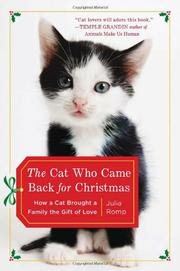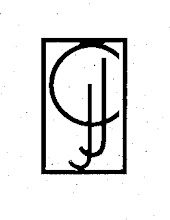A month ago I got a call from a friend—the kind of call we dread receiving, the kind of call we dread having to make. I knew from B.’s voice that something was wrong. And then it tumbled out: His cherished buddy—his first dog—had reached the end of his Earthbound days. They parted physical ways with the assistance of a veterinarian’s needle.
I felt B.’s pain. Not just because I could relate, but because I’d witnessed the profound changes the canine brought to B.’s life.
I remember the first

day I saw them together. B. had just adopted Roark from a rescue group (
the same one our pooch came from). They were standing together in front of a neighborhood pet-supplies shop, turning the heads of drivers and passersby. In an area glutted by Retrievers and Labs, a stylish man with a sleek blue Weimaraner becomes a spectacle. B. was over-the-top happy with the creature at leash’s end. This happiness alone was an entirely new dimension of B.’s personality. Well, perhaps not new, but previously concealed most of the time. Roark had managed, in only a few days, to beeline straight to B.’s heart and make public B.’s range of emotional depth. They were bonded.
Then came trouble. For, of course, Life is a bloody seesaw and won’t let you experience long-awaited joy without soon balancing that out with a burst of bad news. In Roark’s case, it was a wonky heart and kidneys. B. saw more vet specialists and emergency teams in his first months with his first pooch than some of us see in our dogs’ lifetimes.
The rescue group stepped in and defrayed the costs (financial, not emotional) of the healthcare roller-coaster Roark was riding. In the wings, B.’s friends and family held their collective breath. Would the dog make it through? If not, would B. make it through?
When both made it through, there was a collective sigh of relief. Death had not only released the dog from Its grip, but had also left Roark and B. even more devoted to one another.
B. was no longer alone. He became part of a six-legged man-beast hybrid, half of an inseparable pair. They walked together, lazed around together, travelled together, ate together, snuggled together.
B.’s fashion priorities shifted. In the B.D. era (Before the Dog), my friend never stepped beyond his threshold without being tastefully dressed. And he could get snarky about people who did otherwise. But once B. accepted his new status as dog steward, along came “dog clothes.” Stylish still, but not always so perfect.

B. started to rethink his life’s purpose. He gave up everything in the Windy City and ventured West—with Roark at his side—in search of new terrain and soul-fulfilling work. They camped. They met interesting people. They smelled the unusual, saw the magnificent. They had a truly great adventure together. And on the road, B. learned more about himself and realized he belonged—at least for a while—back in the Heartland. The answer was not in the West. And so they journeyed, from Oz to home, together.
B. and Roark lived with us for a bit until their new apartment was available. We were happy to have a dog roaming the rooms again, and B. was a great help to us as we prepared to move to the Bluegrass. I took Roark for walks, but mostly I just watched him, for he made it quite clear that his affections were meant only for B. When B. left the apartment for any reason, Roark cried and pined inconsolably at the door.
After we moved to Kentucky, B. and Roark moved to the East Coast temporarily. B. had been accepted into a degree program that would springboard his life’s calling. We were thrilled for him. At last, with Roark at his side, Life was falling into place for him.
Three months later, the seesaw shifted. Roark’s body started turning against them both, his impaired organs becoming markedly wonkier. Filled with toxins, the poor dog could no longer control his actions, and knew it. Soon, according to the vet, Roark’s brain would also be affected. The inseparable pair knew this couldn’t be allowed to happen. The inseparable pair knew they had to let go of one another.
B. spent Thanksgiving weekend snuggling with his best friend, giving Roark his undivided attention. It would be their last weekend together.
When B. and I talked, he mentioned that Roark had been with him for only 4.5 years. I couldn’t believe it. Obviously, I’d lost track of time, but they were so much a part of each other it seemed they’d been together a lifetime.
Whatever the time they had together, I believe B. and Roark spent it “
ankle-deep in Heaven.” And it just doesn’t get any better than that.
 À bientôt, Master Roark…
À bientôt, Master Roark…






























